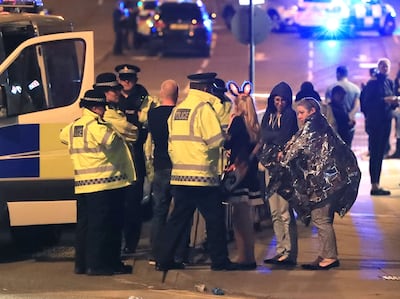British authorities have thwarted 39 terror attacks on public figures including MPs in the past six years, a Home Office report has revealed.
In its first update since 2018, the counter-terrorism strategy Contest laid out how terrorist plotters are becoming more difficult to detect as advances in technology are being exploited.
There have been nine terrorist attacks in the UK during that period, with six people killed and 20 injured.
The number of UK citizens killed in terrorist attacks overseas in the same period was 24.
The 70-page document said attacks planned for major public gatherings had been foiled.
“Since March 2017, our agencies and law enforcement disrupted 39 late-stage terrorist plots in the UK,” the Contest report read. “These have included the targeting of public figures, such as MPs, specific communities and events, such as Pride, and public locations, such as iconic sites in London.”
It said Rishi Sunak’s government must “ruthlessly prioritise finite resources” to respond effectively to terrorism.

The report warned: “We now face a domestic terrorist threat which is less predictable, harder to detect and investigate; a persistent and evolving threat from Islamist terrorist groups overseas; and an operating environment where technology continues to provide both opportunity and risk to our counter-terrorism efforts.
“We therefore judge that the risk from terrorism is once again rising.”
Islamist extremism is the largest threat to Britain’s national security, accounting for 67 per cent of attacks since 2018, and about 75 per cent of the caseload of MI5, the security service.
More than six in 10 (64 per cent) of terrorist convicts in prison have followed an Islamist ideology, the report said.
Within that category, “explicit affiliation and fixed ideological alignment with any one specific international terrorist organisation is diminishing”, the document said.
It noted a “relative decline” in the profiles of Al Qaeda and, to a lesser extent, ISIS.
Extreme right-wing terrorists have accounted for 22 per cent of attacks since 2018, about 25 per cent of MI5's caseload and accounting for 28 per cent of those sentenced over terrorist offences.
The threat from far-right terrorists in western countries is “increasingly a transnational issue in terms of radicalising influence, inspiration and communication”, the report said. “Unlike Islamist terrorist groups, extreme right-wing terrorists are not typically organised into formal groups with leadership hierarchies and territorial ambitions, but informal online communities which facilitate international links.”
Across different types of ideologies, the domestic terrorist threat is dominated by individuals or small groups who may have taken inspiration from groups but are acting without their direction, Contest said. It said every person who carried out a terror assault in the UK over the past 10 years has acted in such a way.
This reality makes it harder for authorities to identify, investigate and foil plotters.
Convicted terrorists continue to pose a threat to the British public after they are released from prison, the report noted.
As of March there were 232 people in custody for terrorist-related offences in the UK.
“Those convicted of terrorism or a related offence may continue to pose a threat; four of the nine declared terrorist attacks in the UK since 2018 were perpetrated by serving or recently released prisoners,” the report said.
“Individuals convicted of non-terrorism offences may also hold a terrorist mindset or develop one during their time in prison.
“Despite ongoing efforts to mitigate the terrorist risk posed by individuals in custody, the vast majority will require long-term risk management, which may last for decades post-release.”
In a foreword to the report, Home Secretary Suella Braverman said the Conservative government would "place greater focus on using all the levers of the state to identify and intervene against terrorists".
Ministers will work to forge new partnerships with the private sector and international allies to bolster security, she said, and use technological advancements to counter terrorism.


